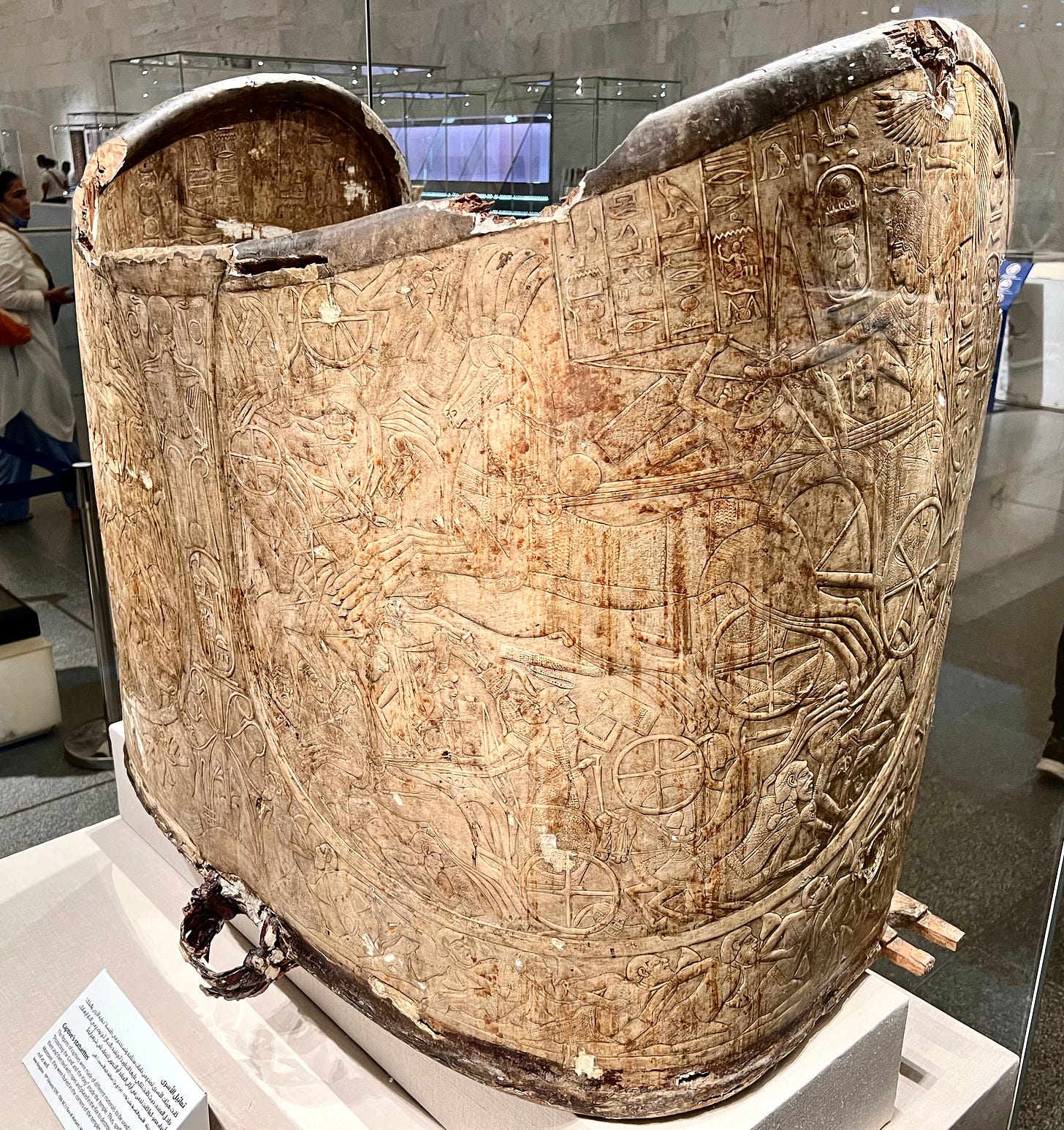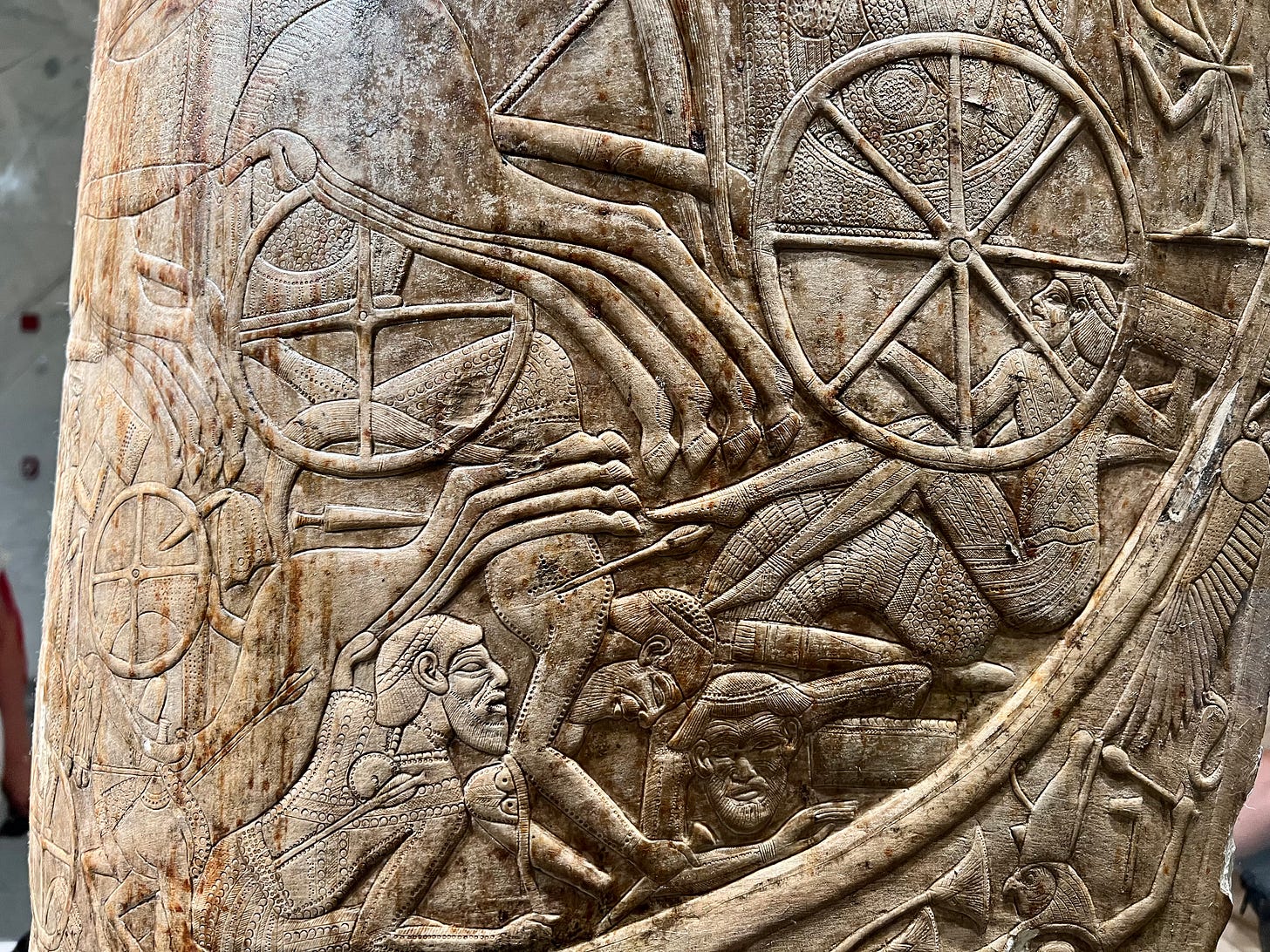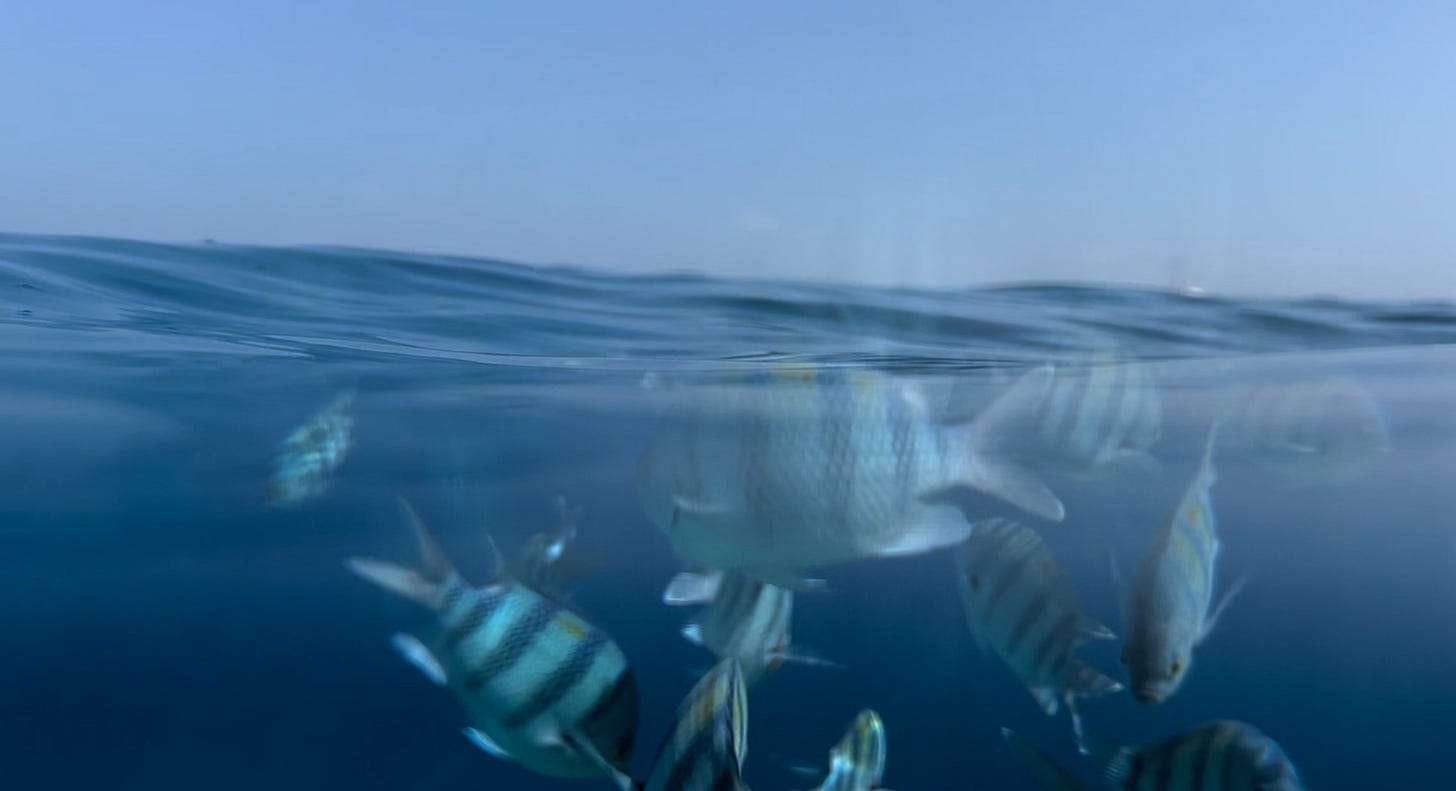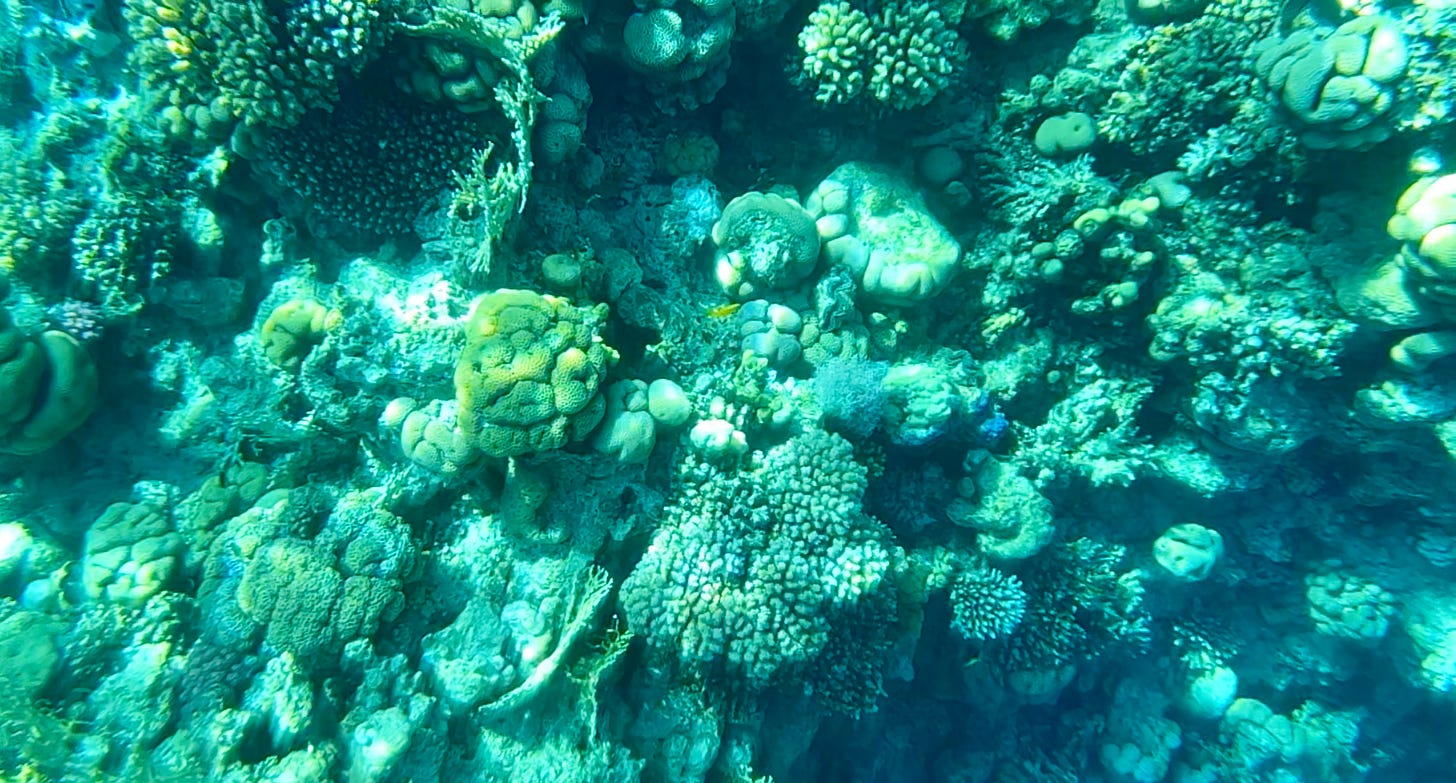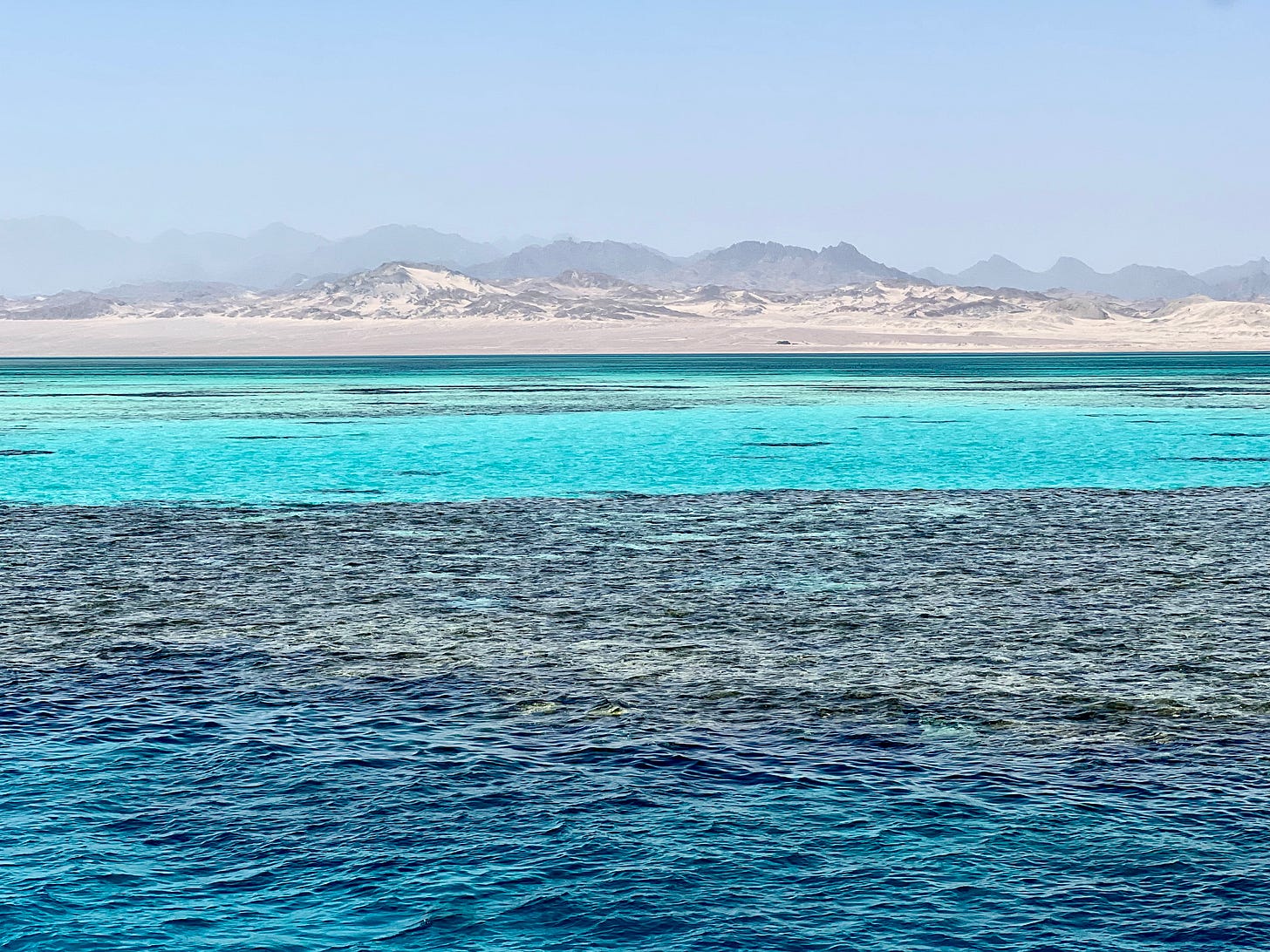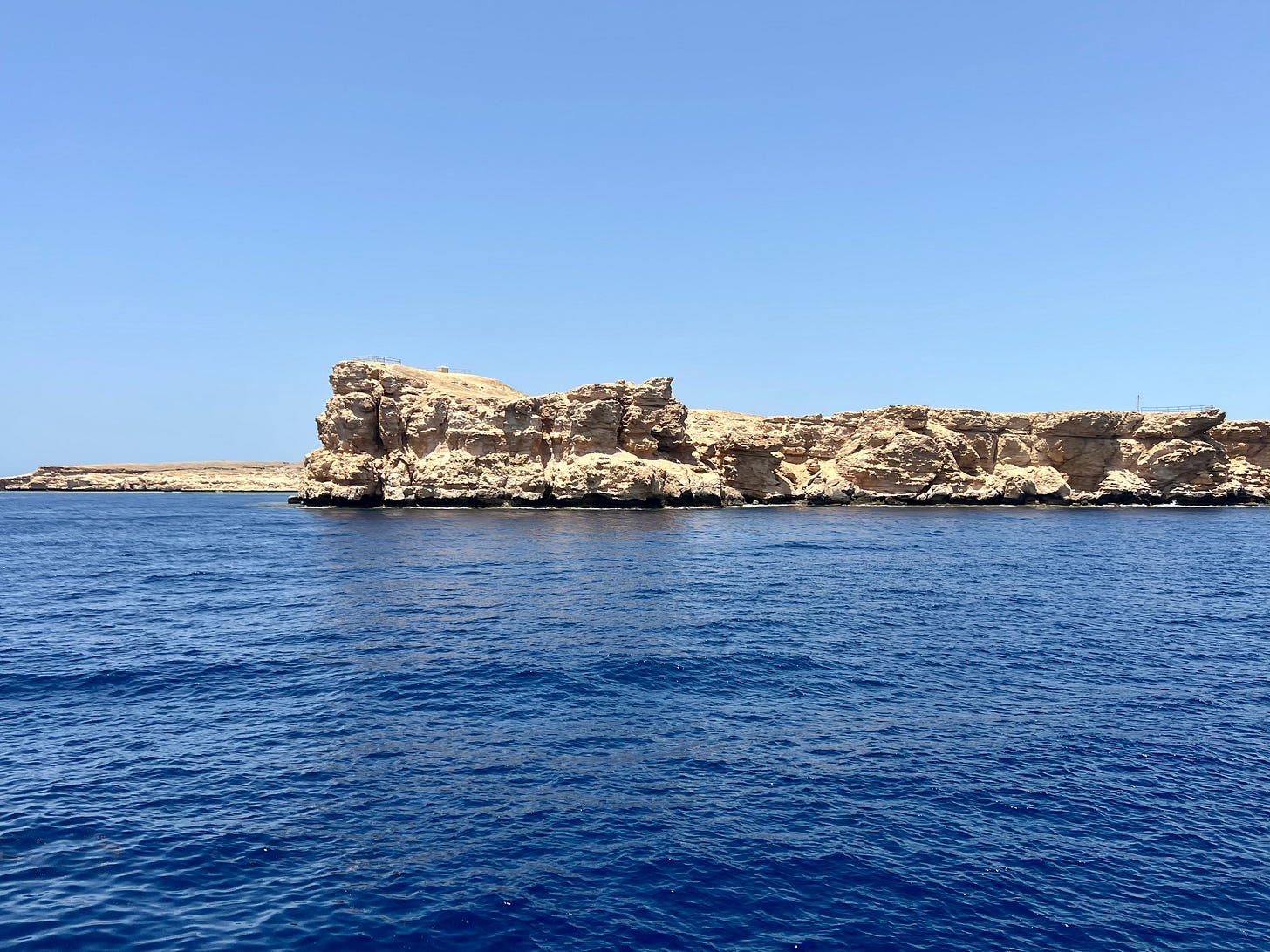Hello! Hope you’re well. Here’s the latest from my neck of the woods:
This Is The Big One
I dropped a brand new episode of Holy Ghost Stories for you this week called “Rite and Passage.” It’s the moment in the Exodus we’ve all been waiting for: the epic splitting and crossing of the sea. 🌊🙌🌊
My incredible composer, Kendall Ramseur, outdid himself with this one. The score moves seamlessly between the intimate and the bombastic—it will bewitch and transport and move you to tears as you feast your mind’s eye on the unparalleled might and deliverance of Yahweh.
Too, I loved writing and narrating this episode—what an amazing story to tell.
I’m so excited for you to experience it. For now, though, a few interesting behind-the-scenes details:
BITS AND BOBS
Rite and Passage - A play, of course, on “rite of passage,” the second half of this episode’s title refers, unsurprisingly, to the Israelites’ journey through the sea. The first half, though, makes reference to a lesser-told part of this section of the story: Yahweh’s regulations concerning the Passover feast. I love the juxtaposition of the two in this episode—the Passover guidelines seem like a strange interruption to the flow of the story in the text of Exodus, but an “interruption” like that is always a good time to pay attention and look for why things happen that way.
Bones - We open this episode with a glimpse into a ‘pre-rescue rescue’ of sorts—a tomb raid executed in fulfillment to a promise. Dry bones raised up and destined for a new reality. Very Yahweh, no?
This is what the chariots looked like - While researching for this season in Egypt, I came across this extraordinarily preserved chariot from the New Kingdom era (the time of the Exodus). My wife found it first and practically sprinted across the museum to grab me and bring me over. I could not believe my eyes:
Note the molded leather with intricate design work, including a running effect given to the horses’ legs:
If you’re ever in Cairo, a trip to the National Museum of Egyptian Civilization is well worth your time. It was such a thrill to be able to incorporate detailed descriptions of Egypt’s chariots in this episode. As always with that kind of stuff, I’m not making it up. :) (By the way, the National Museum in Cairo also taught me about the statuettes Eyptian priests would use to act out and prophesy the demise of Egypt’s enemies—a moment that features in this episode as well.)
Red Sea or Reed Sea? Interestingly, the Hebrew “yam sûp” (pronounced not “yam soup,” which sounds delicious, but instead “yom soof”) in places like Exodus 15:4 (“He threw Pharaoh’s chariots and his army into the sea; the elite of his officers were drowned in the Red Sea.”) doesn’t actually mean “Red Sea” but “Reed Sea” or “sea of reeds.” Based on this, some commentators will argue that Israel didn’t cross the Red Sea at all, but in fact some marshy area north of the western finger of the Red Sea we now call the Gulf of Suez. Counter to this proposition, I offer three points:
Though it seems “yam sûp” is used to refer to various bodies of water, it is most certainly used at times to refer to the Red Sea—for instance, 1 Kings 9:26, which says “King Solomon built a fleet of ships at Ezion-Geber near Elath [or Eilat] on the shore of the yam sûp in the land of Edom.” Yam sûp here is clearly a reference to the Red Sea, specifically its northeastern finger, known today as the Gulf of Aqaba.
Based on the above, it seems the translators have done us a favor by translating the geographical meaning of Yam Sûp in Exodus 15:4 rather than the literal meaning of the Hebrew phrase. This makes sense—if I was translating an ancient Spanish text that referred to a specific location now called by a different name, I would likely use the modern place name in my translation, perhaps footnoting the literal meaning of the original name.
If the crossing actually happened in a shallow, marshy area north of the Red Sea, nothing in the text really makes sense. Israel being “trapped” against that sort of body of water would not have necessitated such a miraculous deliverance, and Yahweh closing the waters of a shallow marsh on the entire Egyptian army to drown them would be absurd.
—For these reasons, I’m of the strong opinion that Israel crossed what we now know as the Red Sea—most likely The Gulf of Suez, the Red Sea’s northwestern finger. (Also, you may notice in the episode that I sidestep all of the semantics and call this body of water simply “The Sea.”😎)
Coral! - Speaking of the Red Sea, part of my research trip to Egypt involved snorkeling and scuba diving in the Red Sea. It was an absolutely incredible experience. You may not be aware, but the Red Sea is one of the world’s top dive destinations, boasting over 1,000 species of fish and a myriad of coral formations. Here are a few quick shots I grabbed during our time underwater:
And here are a couple our dive team took:
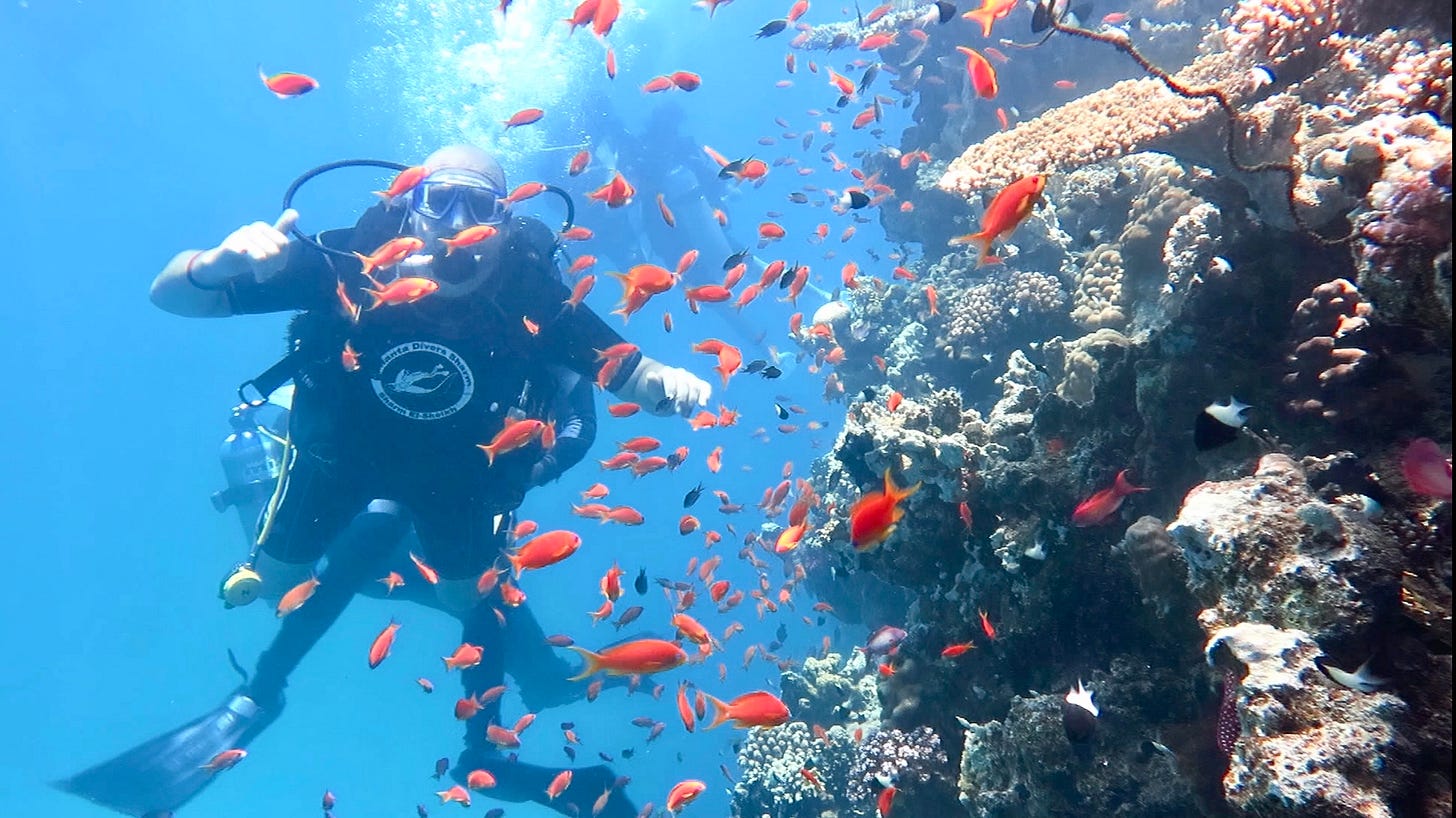
See that guy behind me? His name is Mohammed and he’s holding onto my back, controlling me like a puppet. This was my first ever dive (accompanied, so no training at all) and I legitimately thought I was going to die. He kept having to point out the coral and fish because I was so focused on breathing I was missing most everything else.😀 But I’m so glad I did it! Two things about all this sea life:
What an incredible juxtaposition with the surrounding above-water landscape, right? Here are a couple of shots I took of the shore from our boat on the Red Sea—monocrhomatic desolation above, while a kaleidoscope awaits beneath the surface:
It’s absolutely incredible to imagine the Hebrews walking into the sea that night and weaving around massive coral formations illuminated by the flickering light of the pillar of fire behind them. What a breathtaking moment Yahweh orchestrated.
“Did the Egyptians have trumpets?” - You’ll hear me mention trumpets in this episode—not only do we know the ancient Egyptians had them (there are illustrations from the time of Ramesses II depicting trumpets in battle), we actually have two that were buried with King Tutankhamun (who lived relatively close to the time of the Exodus) and you can hear them being played in this recording. Sure, the trumpeter uses a modern mouthpiece to play them (which means it’s not a perfectly accurate representation of the way they would have sounded 3,000 years ago), but come on—this is amazing:
Meet the Khopesh - I mention the Egyptians’ swords in this episode as well. If it’s been a minute since you’ve seen a New Kingdom sword, here’s a lucky bloke who got to hold one of the swords (called a Khopesh) found in Tutankhamun’s tomb:
25 Points - 25 points to anyone who catches a four-word quote from Shakespeare’s Julius Ceasar in this episode. In fact, I’ll buy you a drink at Starbucks if you’re the first person to email me the reference.
God “hardened Pharaoh’s heart” - I’ve made reference to this phenomenon more than once so far in my telling of the Exodus story, but this episode might contain the most succinct description of this infamous act: “[Pharaoh’s] chest swells, and Yahweh obliges—gives Pharaoh what he has chosen again and again: a heart calcified and nonporous, where cosmic truth is unwelcome and delusion rules.”
A New Song - I was so excited for Kendall to score the final scene of this episode, where we spend some time with the song Moses and the Israelites sing after Yahweh has led them through the sea and vanquished the Egyptian forces. In the notes I gave him before he set to work, I told Kendall, “this is an opportunity for you to join Moses and put his song to music.” Not only did he do that, Kendall took the opportunity to add his own voice to their song—those vocals you hear at the end? They’re Kendall himself. I’ve isolated them as a separate file and will be sharing that this week with all of you fine folks who are patrons. Haunting, beautiful—I think you’ll love it.
Give It A Listen
Okay—if you haven’t already, give “Rite and Passage” a listen. I hope it blesses you deeply.
APPLE PODCASTS | SPOTIFY | GOOGLE | AUDIBLE
If you’ve already listened, I’d love to hear your impressions; just reply to this email. Also, leave a review while you’re at it—it helps other folks decide to check HGS out.
Back In A Flash
This week’s episode marks the conclusion of Part 1 of The Exodus—Kendall and I will be working hard over the next several weeks to get a head start on Part 2 of this season, which should be available next month—our plan is to resume the season on April 24 with Episode 6, which I cannot wait for you to hear.
Between now and then, Kendall and I will be teaming up for a behind-the-scenes look at this season’s score, which Kendall has lovingly crafted by hand for each episode—we’ll let you in on our process, dissect a few of our favorite scenes, and show you all kinds of stuff that I’ll bet you missed. It’ll be a lot of fun. I’ll drop that as a bonus episode in the main podcast feed when it’s ready—make sure you’re subscribed so you don’t miss it.
Holy Ghost Stories Live
I’ll be in Nebraska next week for a show at York University—if you’re in the area, you should join us! In a beautiful display of generosity, YU is making the show just $5 for the public.
Partner Up
Holy Ghost Stories only happens when listeners decide to chip in and support this kind of storytelling. If you (or your business or church) would like to make a one-time, tax-deductible gift to Hazefire Studios, you can do that here:
If you’d like to become a patron and support the show monthly alongside a fantastic tribe of fellow HGS faithful, here’s the link for that:
3 Cool Things
I See A Little Silhouetto of a Man - Want to hear Bohemian Rhapsody played on the largest pipe organ in the world? Here you go. (Also, look at all the stuff this guy has to do!! His hands were already wowing me, but when it cuts to his feet at 4:38…)
Lunar Lander - Use your keyboard’s arrow keys and lets see if you can beat me. I worked up to a fender bender after just three tries.🤓
What a Shot - The World Nature Photography Awards has announced this year’s winners and they’re stunning. The world, you guys—it’s a wonder.
That’s the latest! Hope you’re blessed by “Rite and Passage.” Let me know if this episode has you seeing/thinking/feeling anything new as you enter the story—I love hearing from you.
Gratefully,
Justin



